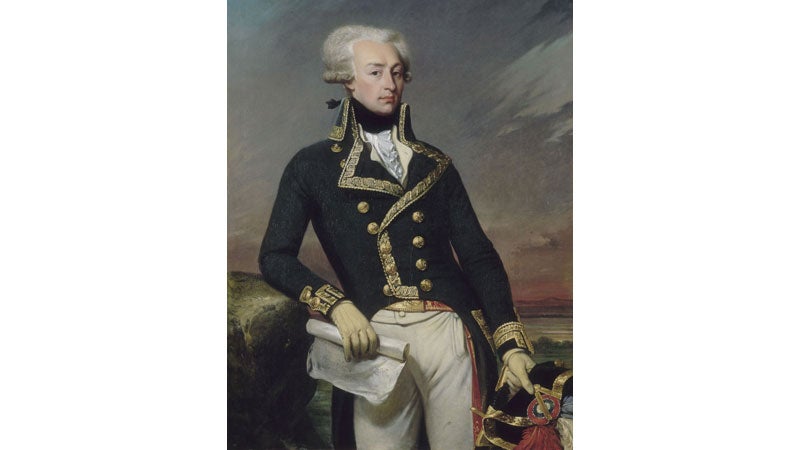COLUMN: The Young Gilbert du Motier, Marquis de Lafayette
Published 11:00 am Saturday, April 6, 2024

- Gilbert du Motier, Marquis de Lafayette
|
Getting your Trinity Audio player ready...
|
Editor’s Note: This is the third in a series of biweekly articles leading up to the bicentennial celebration.
By Frank and Gloria Womble
Gilbert du Motier, Marquis de Lafayette, was a French aristocrat, Freemason, and military officer. He was born into an ancient, wealthy land-owning family in Chavaniac in the province of Auvergne in south-central France in 1757.
In 1768, Lafayette, at age 11, went to Paris to live with his mother and great-grandfather at the Comte’s apartments in Luxembourg Palace. He was sent to school at the Collège du Plessis, part of the University of Paris, and enrolled in a program to train future Musketeers. When Lafayette’s mother and grandfather died within a few days of each other in 1770, Lafayette became one of the wealthiest men in France.
In May 1771, aged 13, Lafayette was commissioned a sous-lieutenant (second lieutenant) in the Mousquetaires du Roi, or “Black Musketeers,” King Louis XV’s horse guard. His duties were largely ceremonial, including marching in military parades and presenting himself to King Louis.
Lafayette was engaged at age 14 to the 12-year-old Marie Adrienne Françoise. This marriage was arranged by Adrienne’s father, who had five daughters who needed suitable and preferably wealthy husbands. The marriage was opposed by her mother, who thought the couple (especially her daughter) was far too young. The compromise solution was not to mention marriage for two years, allowing Lafayette and Adrienne the chance to meet and get to know each other. It worked; the two fell in love and were happily married from their marriage in 1774 until she died in 1807.
Lafayette was at annual training with his regiment in Metz in 1775 when he met General Charles-Francois, duc de Broglie, commander of the Army of the East. While there, de Broglie invited Lafayette and his friends to dinner with the Duke of Gloucester, brother of King George III. Gloucester sympathized with the American colonists’ struggle for independence and openly criticized his brother. In his memoires, Lafayette claimed he was won over immediately. “Such a glorious cause had never before rallied the attention of mankind. I gave my heart to the Americans and thought of nothing else but raising my banner and adding my color to theirs.”
Lafayette saw the opportunity for glory and adventure, plus a way to avenge France’s defeat by the British in the Seven Years’ War and his own father’s death by a British cannonball at the Battle of Minden when he was less than two years old. He was inspired by his exposure to Enlightenment philosophy, which emphasized individual liberty and religious tolerance as opposed to absolute monarchy and the power of religious authorities. Membership in the Freemasons, who promoted the ideals of the Enlightenment, certainly reinforced Lafayette’s idealism.
Lafayette defied a written decree from King Louis forbidding French officers from serving in America, which mentioned him by name, and ignored his father-in-law’s orders to the same effect. He purchased and outfitted a ship, Victoire (Victory) with his money. He neglected to inform his pregnant young wife that he was planning to leave France, successfully evading the French authorities’ attempts to stop him and set sail for South Carolina in April 1777.
The American Friends of Lafayette is partnering with Suffolk 250 and the Constantia Chapter, Daughters of the American Revolution, to commemorate the bicentennial of Lafayette’s Farewell Tour with events in Suffolk in 2025: A memorabilia exhibit from January 23 to March 1 at the Suffolk Center for the Cultural Arts; Lafayette’s arrival on February 23 at the Suffolk Visitor Center/Riddick’s Folly; a banquet on Feb. 25 at the Hilton Garden Inn Suffolk Riverfront; and reception on Feb. 26 at the Washington Smith Ordinary in Historic Somerton.





